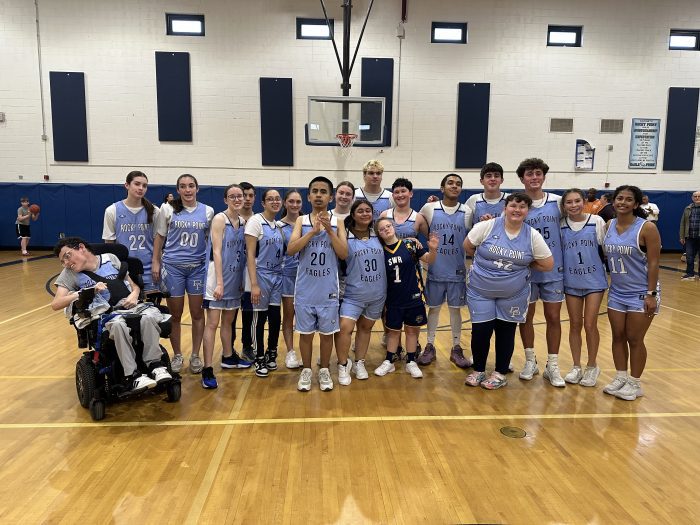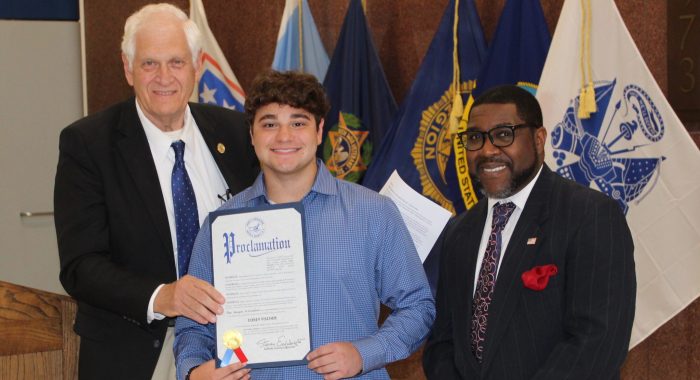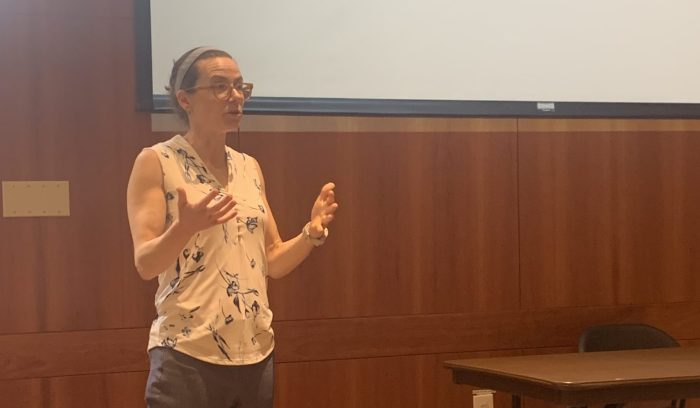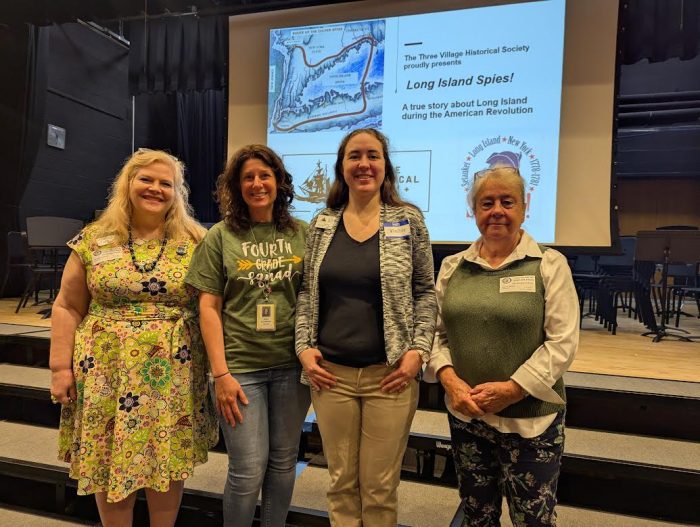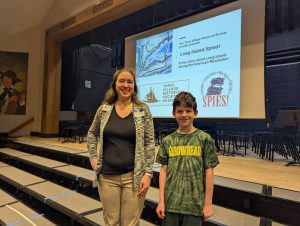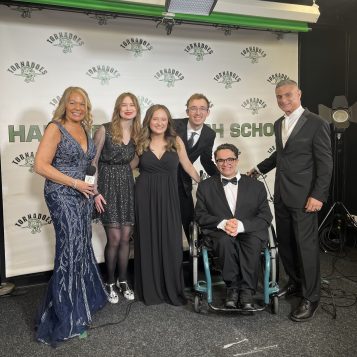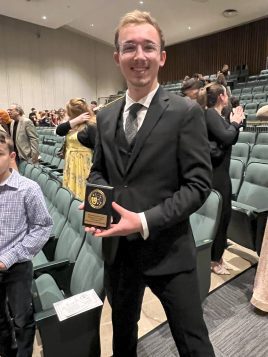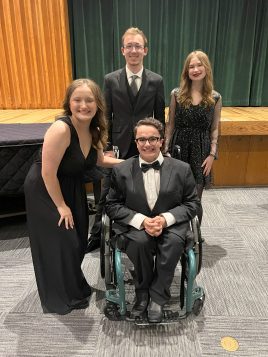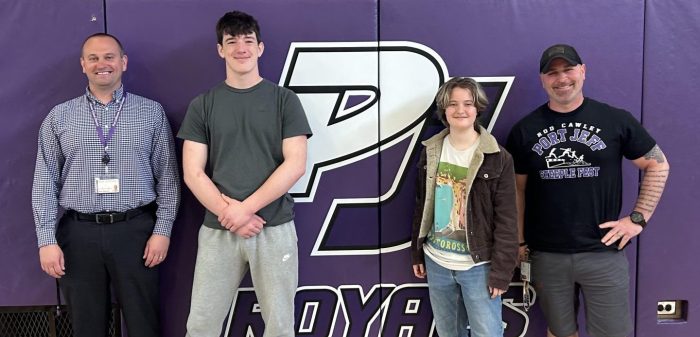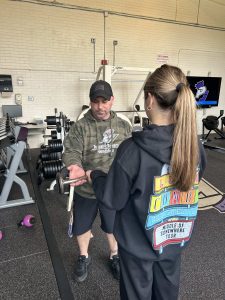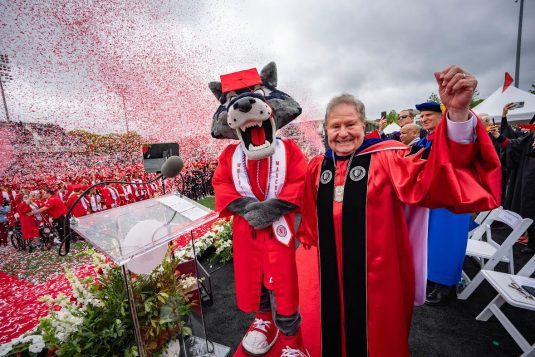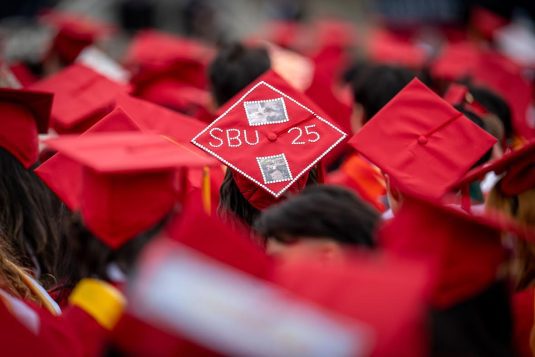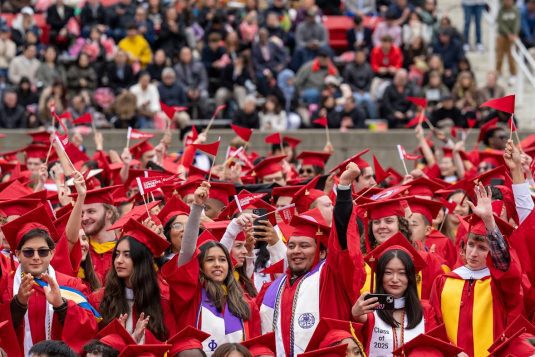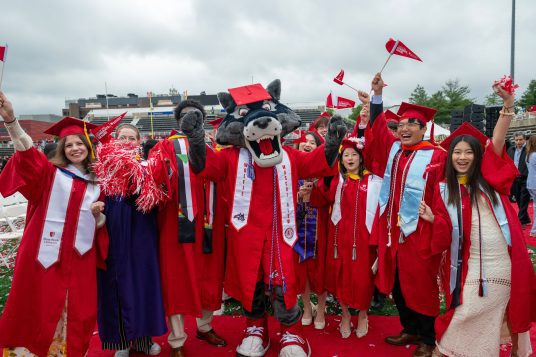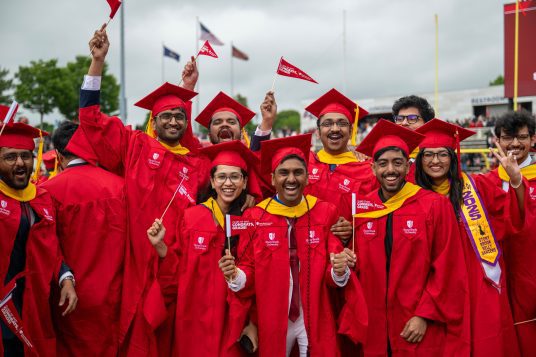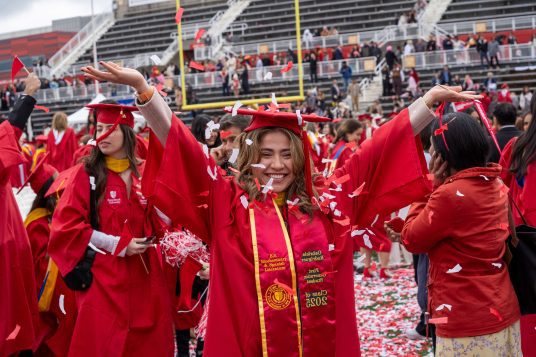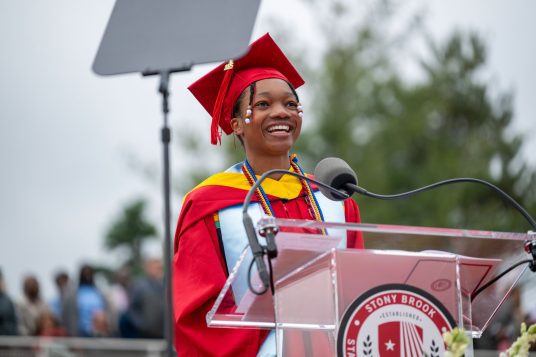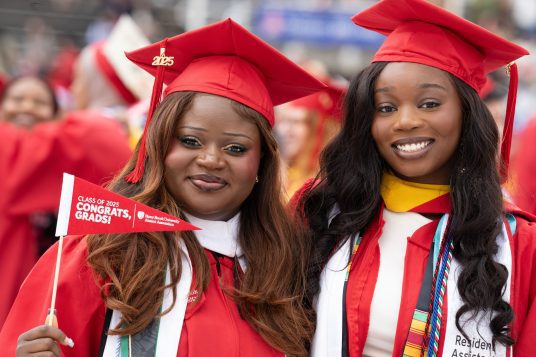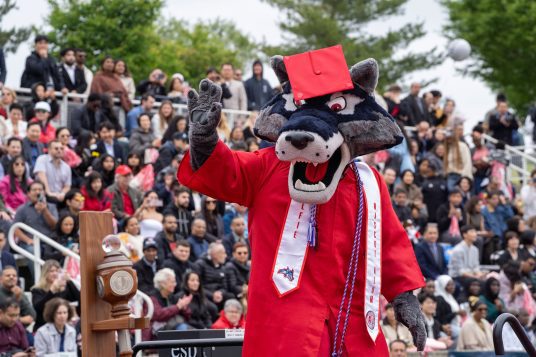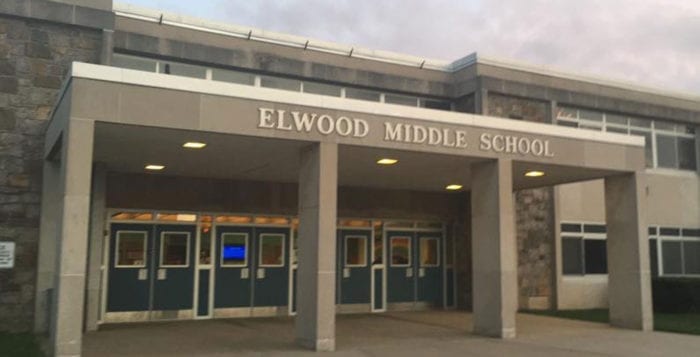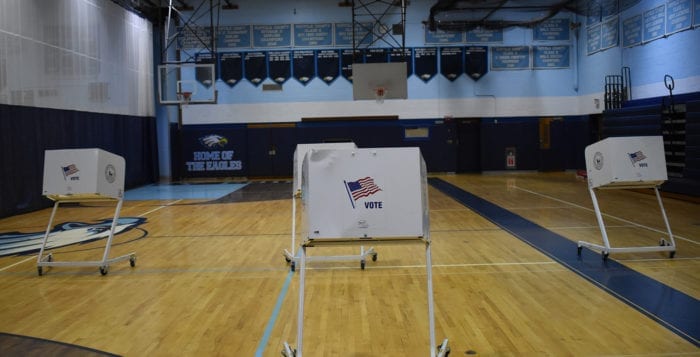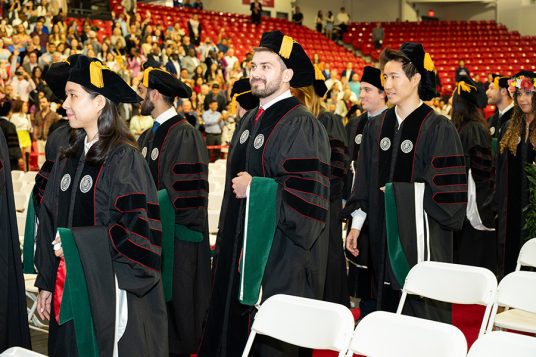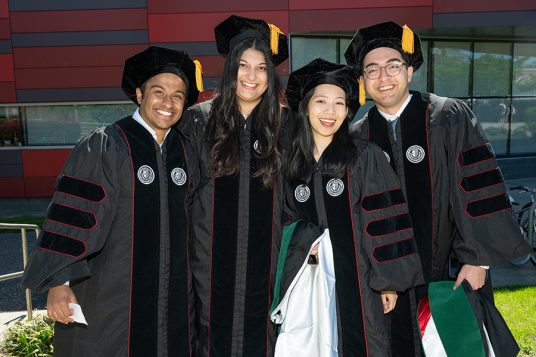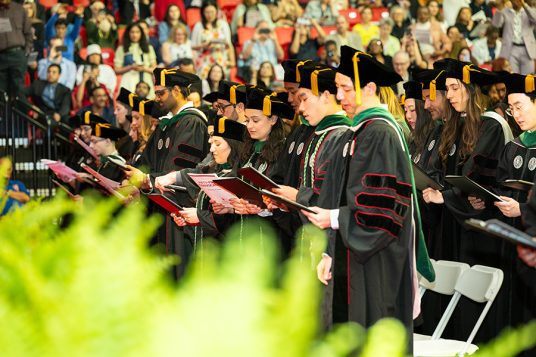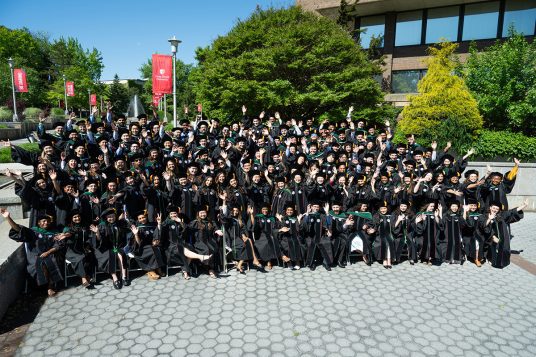By Richard V. Acritelli
Smiles, hustling and hard work are the best ways to describe what Rocky Point High School teacher Jessica Gentile has experienced and how she is motivated in her classes. In the transitional support skills course, Gentile and her devoted aides and students carry out an incredibly busy schedule.
Many of these students are almost finished with their second Unified Basketball season that began in late spring. The Unified Basketball team includes athletes with and without disabilities. With an eight-game schedule that features four games at home and four away, the eight-player team and eighteen partners, who assist the players, work together dribbling up the court, shooting and playing defense. Last game alone, Nick Argentieri acted as the “secret weapon” for this squad, as he shot four 3-pointers against the most recent opponent. Bryanna Estevez is legally blind, and she is moved up and down the court by her partner and placed in front of the net, where she has scored many points to help her team during the heat of these games.
Every game, fans intently observe the drive of these players to represent their school through the new seasons for unified athletics. Only within their second season, there is much jubilation on and off the court. Compared to last year’s slow start, they have already won three games, and they will complete their season this week. There are many moving parts in the coordination of the team, uniforms, transportation, student partners and aides who contribute to the course. Gentile appreciates all the care that is provided to her athletes, and they enjoy hearing English teacher James Parker announce this unique competition. She is also thankful to athletic director Jonathan Rufa’s unyielding efforts toward her team and players, calling him “absolutely awesome.”
Gentile stresses the need for comradery between the unified student-athletes and their partners. I Brennan Protosow, Kougar Buehler and Jackson Marte are partners in the program, and frequently visit their disabled teammates in the classroom as they are working on different tasks. Much of their conversation focuses on their upcoming games, basketball strategies and being together as a team. Rufa is excited about the future of unified athletics, and he observed, “Now in its second year under the dedicated leadership of coach Gentile, the Unified Basketball team stands as a testament to the profound impact of inclusion, teamwork and the continuous support of our town and school.” Gentile has had measurable help from teachers Danielle Sohngen and Andy Cooper and aides Deidre Carroll, Deanine DeRosa and Marlo Frascella-Iacona.
Graduating from Rocky Point High School in 1979, Bob Szymanski held various management positions at Cablevision and is currently a permanent substitute teacher. He has watched every game this season with a big smile. He said, “It warms the heart to see the joy in the faces of the players when they make a basket. It is equally heartwarming to see the athletic students assisting the players, demonstrating wonderful patience in helping carry out this outstanding game.”
Not only playing hard during basketball games and bowling in the winter, outside of the athletic lines, this wonderful group serves the high school and middle school community through Rocky Perk. Over the last couple of years, Gentile and her helpers deliver cups of coffee, tea, lemonade, iced tea and Arnold Palmers. They most recently added gourmet tacos to their menu that are prepared by Gentile and students in the classroom. Gentile stresses the need to create these meals from scratch and has established a growing cookbook. At their last taco lunch, over 50 meals were served in the high school and middle school. There were chicken and veggie tacos, chips, salsa, buffalo chicken and red pepper and mozzarella pennies. On June 5 there will be a celebration for the supporters of the Unified Basketball team that will start off with raspberry crumb cake and chocolate chip muffins for breakfast and a taco lunch with all the trimmings.
Next year, Gentile will be working with the gym teachers for unified physical education, with the hopeful future sports of top golf and volleyball. Some of the students will be attending the Chief Executive Officer Program, which offers real-life job experiences/skills in places like Walgreens, Ace Hardware and Outback Steakhouse. Through all these endeavors, Gentile and her future classes, helping staff and student partners are all looking to the future of all these amazing educational and athletic activities. Summing up the strength of these programs, which are guided by Gentile and her support staff, Rufa said, “In just two years under coach Jessica Gentile’s guidance, our Unified Basketball team has grown into a family — where every basket, every cheer and every high five and fist-pound is a reminder of the power of necessary educational and athletic programs that make our school shine.”
For more information visit the school website: www.rockypointufsd.org

